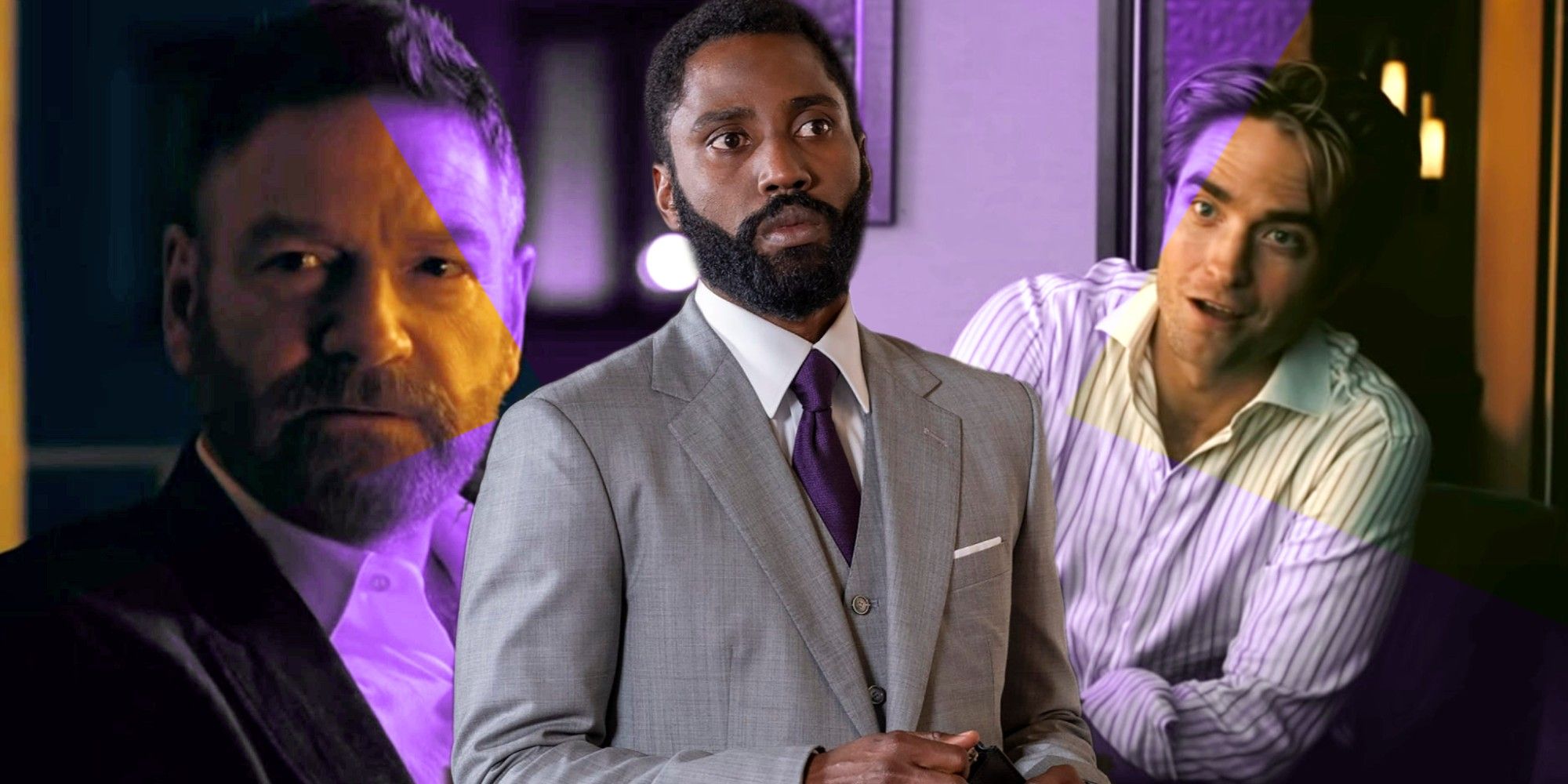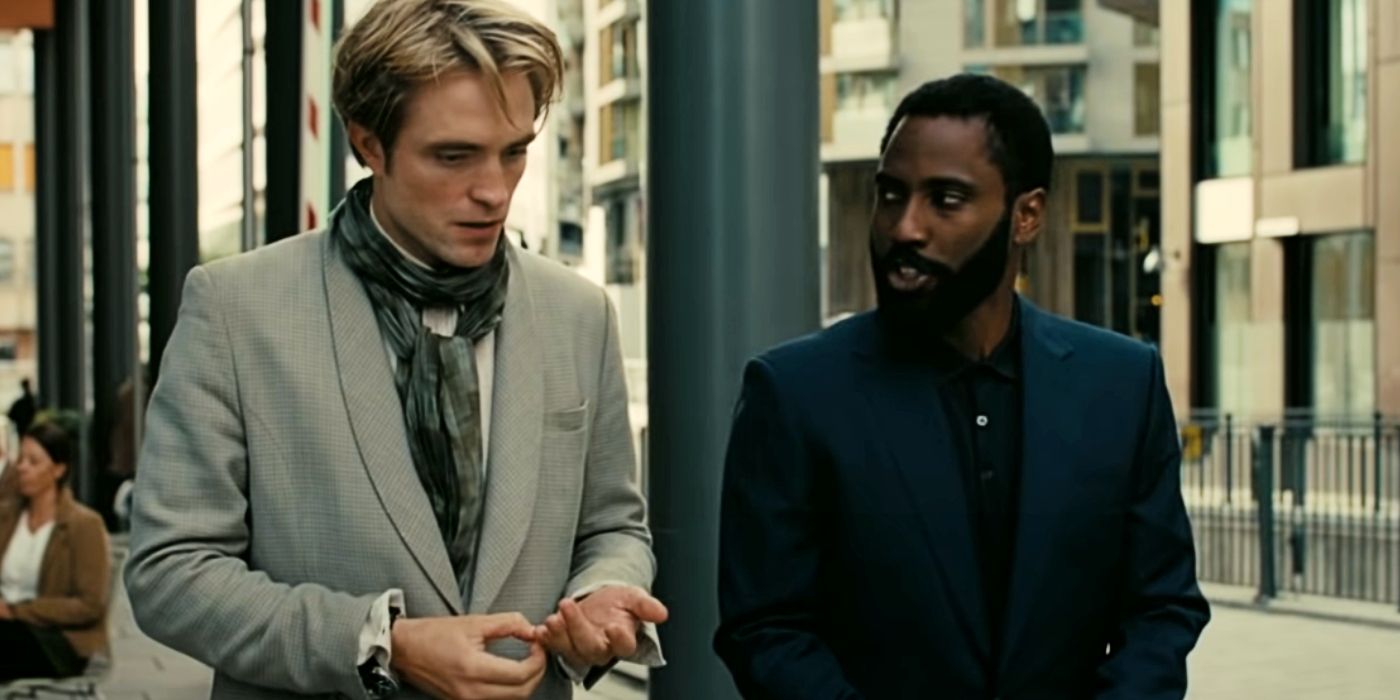As with most any Christopher Nolan film, Tenet, available to stream on HBO Max beginning May 1st, is built around the manipulation of time, but this movie's rules may leave viewers with more questions than answers. One of the most prominent film casualties of the coronavirus pandemic, the mind-bending action/thriller saw mediocre box office returns that failed to meet the ambition of its central premise. But with so much going on both on and offscreen, thoughtful audience members would be forgiven for wondering if The Protagonist (John David Washington) has free will at all. If everything that's happened has happened, to paraphrase from the film, how does that affect the characters' agency and stakes?
Tenet follows the exploits of an unnamed Protagonist spy who is recruited to fight a group of temporal operatives traveling backward in time and threatening humanity's future. Through all manner of stunts, hijinks, and dapper suits, the Protagonist and his sidekick Neil (Robert Pattinson) successfully save the day. But as with much of the story mechanics throughout the film, the ending reveals that this is only the beginning for Washington, but the end of the line for Pattinson. Even with the aid of subtitles to clear up some infamously muddy dialogue, the concept can be challenging to grasp, leading to the conclusion that nothing the characters do is actually changing an already-determined past and/or future.
The crux of the logic problem is this: If what's happened has happened, does that mean that the heroes' success is predetermined? If Neil came from the future to participate in the events of the film, that supposes the future exists and that humanity is saved as a result of the temporal pincer movement in the third act. For the Protagonist to go on and found the Tenet organization, he must have survived the events of the film. Taking these conclusions a step further, they would suggest that Neil and the Protagonist are going to succeed because of the very existence of the operation in the timeline, undercutting the stakes. In short, time travel can't change what has already happened.
But Tenet's time travel isn't narratively conventional, a la Back to the Future. Characters don't move between points in history instantaneously; instead they are inverted, which is to say they travel backward through time as if rewinding at the equal-but-opposite pace of those moving forwards. In pursuit of this Algorithm which, once completed, would overwrite humanity's past, Sator (Kenneth Branagh) and company hope to eliminate humanity's errors, which threaten its future by risking the elimination of humanity itself. This means that the time-traveling villains, if no one else, believe they can change the future. Neil explains the nuances of their situation to the Protagonist using The Grandfather Paradox.
The Grandfather Paradox is a thought problem that questions what would happen if a person went back in time and killed their grandfather: Would they disappear, having removed a link from their genealogical chain, or would them disappearing prevent their killing their grandfather in the first place, resulting in them reappearing? The same paradoxical outcome can be found in the villains' plan to save humanity; there's no way to know what will happen for certain. Even if "what's happened, happened" suggests there's no way to change the future, what matters in Tenet is that the antagonists believe they can change the past to improve their future. And if they believe they can, the Protagonist, Neil, and the whole Tenet organization must do their part to stop that from happening. Like Inception before it, this is a Nolan thriller that will continue to bend audiences' minds for years to come.


